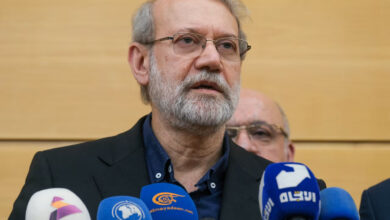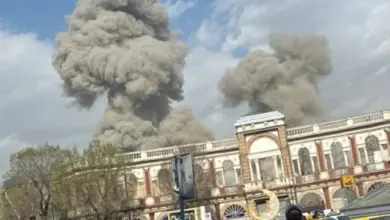Gaza City – Islamist Hamas rulers and the European Union on Saturday welcomed the Egyptian decision to permanently open the Rafah border crossing between Egypt and the Gaza Strip.
Hamas spokesman Fawzi Barhoum called the move "a courageous and reasonable decision that meets the needs of both the Palestinian and the Egyptian people."
"Hamas does appreciate the Egyptian role supporting Palestinian interests and it's eager that this step will be the first in the way of breaking the siege, ending the suffering of Gazans and rebuilding the Gaza strip," he added.
Hundreds of Gazans successfully made the journey following Egypt’s earlier decision to open the crossing on Saturday. Egyptian authorities, however, implemented tight restrictions on traffic and demanded visas for all men between the age of 18 and 40 who wished to enter Egypt. Others require initial security clearances only.
People in Gaza received the news with varied excitement, resentment and skepticism.
"I'll finally achieve my dream of getting abroad and having the chance to study there," said 18-year-old Yasmeen Saleem.
Gazans have suffered greatly since Israeli authorities, aided by the Egyptian government, imposed a blockade on the Palestinian coastal enclave after Hamas forcibly ousted Western-backed Fatah in 2007.
But some Gazans, like Abu Yazan, 24, expressed disappointment with age and gender limitations.
"I don't know what Egypt is afraid of?” he said. “Why can't I pass like other females my age? This is so unfair."
And others, such as 20-year-old Nalan Sarraj, say that even for those permitted to cross, it's still too early to celebrate the news.
"I still can't see this as a final decision just because I’ve seen people celebrating the reconciliation between Fatah and Hamas. Nothing is real on the ground yet,” she said. “The same is for the Rafah border opening; I need to see it on the ground."
The Egyptian decision followed a historic accord struck between the two erstwhile Palestinian rivals, Fatah and Hamas, and brokered by Cairo.
About 1500 people Palestinians may not leave the coastal strip, however, as they do not have identity cards required for travel. These people were born outside the Palestinian territories and since their return, they have been applying to Israel for the cards.
Israeli officials administer the process sluggishly, and the gap between Hamas and Fatah exacerbates the situation. Palestinians must apply through the Palestinian Authority in the West Bank, but for that to happen, the Gaza-based Hamas government must get in touch with officials there.
Safa' Brec, 38, who was born in Saudi Arabia and moved to the Gaza Strip to start a family in 1997, said the news means nothing to her, as she does not yet have an identity card yet.
"I have been applying to get one since 1997, but developments in the area are making it hard,” she said.
The violence during the Second Intifada, street battles between Fatah and Hamas and Operation Cast Lead were obstacles in her way.
"I think that our case is not less important than the case of Palestinian prisoners in the Israeli jails,” she added. “I truly feel that I'm in a jail; I can't even see my family in Saudi Arabia for a second."
Meanwhile, Israel is anxiously watching developments in Palestinian-Egyptian relations.
“This is a dangerous development that could lead to the smuggling of weapons, explosives and Al-Qaeda agents into Gaza,” Silvan Shalom, deputy prime minister from the right-wing Likud Party, said on Israel Radio in reference to the Rafah opening.
Other Israeli officials think that the opening may act in their favor, as it will turn global attention to Egypt’s responsibility for Gaza's plight, thereby decreasing international pressure on Israel.




